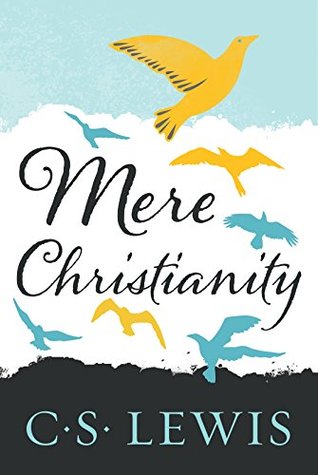What is the number one bestseller in Christian Literature and Art? Is it from a hot new author? Nope.
It’s a book written by an Englishman who gave a series of radio broadcasts during WWII that became a book. A book that has influenced countless people and the go-to recommended reading for Christians.
“Mere Christianity is C.S. Lewis’s forceful and accessible doctrine of Christian belief. First heard as informal radio broadcasts and then published as three separate books – The Case for Christianity, Christian Behavior, and Beyond Personality – Mere Christianity brings together what Lewis saw as the fundamental truths of the religion. Rejecting the boundaries that divide Christianity’s many denominations, C.S. Lewis finds a common ground on which all those who have Christian faith can stand together, proving that “at the center of each there is something, or a Someone, who against all divergences of belief, all differences of temperament, all memories of mutual persecution, speaks the same voice.”
In the chapter called the Invasion, where Lewis contrasts Christianity with Dualism, he says this:
“The difference is that Christianity thinks this Dark Power was created by God, and was good when he was created, and went wrong. Christianity agrees with Dualism that this universe is at war. But it does not think this is a war between independent powers. It thinks it is a civil war, a rebellion, and that we are living in a part of the universe occupied by the rebel.
Enemy-occupied territory—that is what this world is. Christianity is the story of how the rightful king has landed, you might say landed in disguise, and is calling us all to take part in a great campaign of sabotage. When you go to church you are really listening in to the secret wireless from our friends: that is why the enemy is so anxious to prevent us from going.”
Makes going to church feel more dangerous and adventurous, doesn’t it? In other countries, it is dangerous.
In the Perfect Penitent chapter, he writes about repentance in the best way I’ve heard it.
“In other words, fallen man is not simply an imperfect creature who needs improvement: he is a rebel who must lay down his arms. Laying down your arms, surrendering, saying your sorry, realizing that you’ve been on the wrong track and getting ready to start your life again from the ground floor-that is the only way out of our ‘hole’. This process of surrender-this movement full speed astern-is what Christians call repentance.”
In the section on morality, Lewis explains why we have moral rules.
“In reality, moral rules are directions for running the human machine. Every moral rule is there to prevent a breakdown, or a strain, or a friction in the runnong of that machine.”
I’m struggling to find quotes that won’t become articles in themselves. Here’s one on “loving in the Christian sense.”
“Good and evil both increase at compound interest. That is why the little decisions you and I make every day are of such infinite importance. The smallest good act today is the capture of a strategic point from which, a few months later, you may be able to go on to victories you never dreamed of.”
In his theology section, I highlighted this quote.
“Once a man is united with God, how could he not live forever? Once a man is separated from God, what can he do but wither and die?”
Later he borrows a parable from George MacDonald that I really enjoy about being a Christian.
“Imagine yourself as a living house. God comes in to rebuild that house. At first, perhaps, you can understand what He is doing. He is getting the drains right and stopping the leaks in the roof and so on; you knew that those jobs needed doing so you are not surprised. But presently He starts knocking the house about in a way that hurts abominably and does not seem to make sense. What on earth is He up to? The explanation is that He is building quite a different house from the one you thought of-throwing out a new wing here, putting an extra floor there, running up towers, making courtyards. You thought you were going to be made into a decent little cottage: but He is building a palace. He intends to come and live in it Himself.”
I’ll end with that quote. This book is vibrant and in-depth. I just barely scratched the surface of its pages. It can be read time and again, and you’ll find something new.
It’s a mere Christianity that all denominations agree with. The hall that connects all the rooms that they stay in. If I were to recommend only one book other than the Bible to a person, it would be Mere Christianity.
For that, it gets six stars of 5.

No comments:
Post a Comment